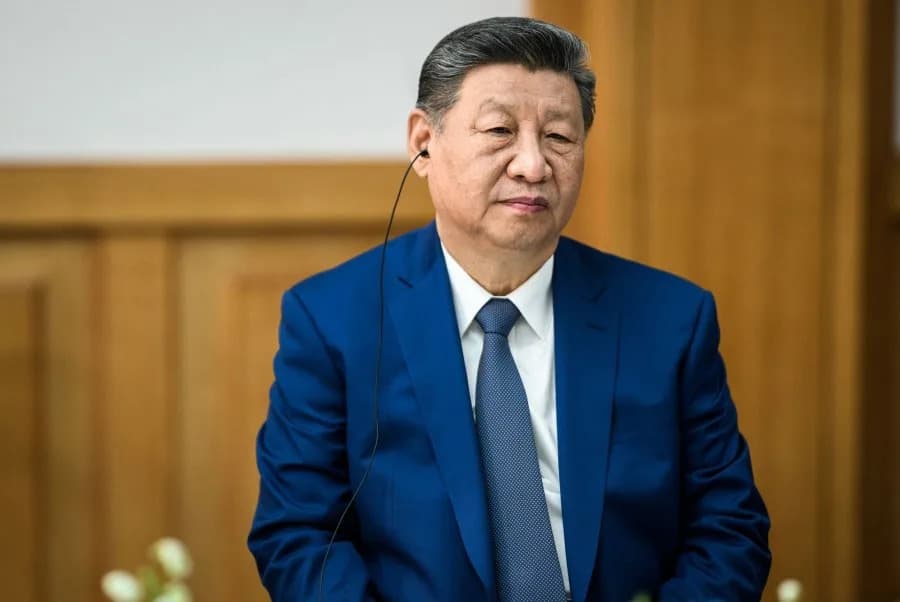Pakistan’s Senate passed the controversial 27th Amendment, which would create a Chief of Defence Forces (CDF), abolish the CJCSC, grant five-star officers lifetime immunity, and establish a permanent Federal Constitutional Court (FCC). The draft also allows presidential transfer of high-court judges on JCP recommendation without consent, raising alarms about judicial independence. Supporters say the changes will speed constitutional adjudication and improve defence coordination; critics warn they institutionalise impunity and undermine civilian oversight. The bill now needs a two-thirds National Assembly vote and the president’s signature to become law.
Pakistan’s 27th Amendment: How it Would Reshape Military Command and Reorder the Courts

Islamabad — Pakistan’s Senate on Monday approved the controversial 27th Constitutional Amendment, a sweeping package that would restructure military command, grant unprecedented protections to top military officers and create a new Federal Constitutional Court (FCC). The bill cleared the Senate in a stormy sitting after an opposition boycott and now requires a two-thirds majority in the National Assembly and the president’s signature to become law.
What the amendment would change
Military command and immunity
- The amendment revises Article 243 to create a new post, Chief of Defence Forces (CDF), to be held by the army chief and effectively place the air force and navy under that office. The post of Chairman Joint Chiefs of Staff Committee (CJCSC) would be abolished later this month.
- It would constitutionalise five-star rank for officers and grant five-star officers lifetime immunity from criminal prosecution, allow them to retain rank and privileges and remain in uniform for life. Removing a five-star officer would require a two-thirds parliamentary majority.
- The amendment would also create a Commander, National Strategic Command (NSC) responsible for strategic assets, including nuclear command, with that post to be filled from the army in consultation with the army chief/CDF.
Judicial architecture
- A permanent Federal Constitutional Court (FCC) would be established, headed by its own chief justice and composed of an equal number of judges from each province and Islamabad. The FCC’s remit would include disputes between the federation and provinces and interprovincial disputes.
- FCC judges would retire at 68, compared with 65 for Supreme Court judges, and the FCC chief justice’s tenure would be capped at three years.
- The draft grants the president the power to transfer a judge from one high court to another on the proposal of the Judicial Commission of Pakistan (JCP) without the judge’s consent. A judge who refuses a transfer could present reasons to the JCP; if the commission rejects them, the judge could be required to retire.
Supporters’ rationale
The government says the FCC will ease the backlog of constitutional petitions before the Supreme Court and provide specialised, faster adjudication of constitutional and federal-provincial disputes. Proponents also argue that a unified CDF office and a clearer strategic command structure will improve coordination among the services and strengthen administrative clarity within the armed forces.
Criticism and concerns
Legal experts, senior judges and rights groups have voiced strong objections:
- Impunity: Critics say lifetime immunity for five-star officers institutionalises impunity and gives non-elected officials protections that elected leaders do not enjoy. "Democracy does not survive where impunity is made a constitutional right," said Rida Hosain, a constitutional lawyer.
- Judicial independence: Observers warn the FCC and expanded transfer powers could be used to weaken judicial oversight of the executive. Reema Omer of the International Commission of Jurists said the package risks making the judiciary beholden to the executive in the short and medium term.
- Rapid process: Human Rights Commission of Pakistan and others have criticised the haste in which the amendment was introduced and pushed through, with limited consultation with opposition parties, the legal community and civil society.
- Senior judges’ alarm: Justice Mansoor Ali Shah described the FCC as a "political device to weaken and control the judiciary," warning the plan represents a manipulation of the judicial process.
Political context and next steps
The measure comes amid complex political dynamics: the ruling coalition led by PML-N and PPP advanced the amendment, while the largest opposition party, Pakistan Tehreek-e-Insaf (PTI), remains politically sidelined. The bill now faces a two-thirds vote in the National Assembly and, if passed, would require President Asif Ali Zardari’s signature to become law.
Potential implications
If enacted, the 27th Amendment would significantly recalibrate Pakistan’s balance between civilian institutions, the judiciary and the military. Supporters say it promises administrative clarity and faster constitutional adjudication; critics contend it risks entrenching military privilege, weakening judicial independence and reducing democratic accountability.
Bottom line: The amendment presents a decisive moment for Pakistan’s constitutional order — a contested reform that could either streamline state functions or fundamentally weaken checks and balances.
Help us improve.




























